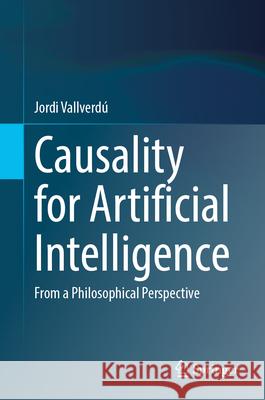Causality for Artificial Intelligence » książka
Causality for Artificial Intelligence
ISBN-13: 9789819731862 / Angielski / Twarda / 2024
How can we teach machine learning to identify causal patterns in data? This book explores the very notion of “causality”, identifying from a naturalistic and evolutionary perspective how living systems deal with causal relationships. At the same time, using this knowledge to identify the best ways to apply such biological models in machine learning scenarios.One of the more fundamental challenges for AI experts is to design machines that can understand the world, identifying the basic rules that govern reality. Statistics are powerful and fundamental for this process, but they are only one of the necessary tools. Counterfactual thinking is the other part of the necessary process that will help machines to become intelligent. This book explains the paths that can lead to algorithmic causality.It is essential reading for those who are not afraid of thinking at the interface of various academic disciplines or fields (AI, machine learning, philosophy, neuroscience, anthropology, psychology, computer sciences), and who are interested in the analysis of causal thinking and the ways in which cognitive systems (natural or artificial) can act in order to understand their environment.Professor Vallverdú is currently working on biomimetic cognitive architectures and multicognitive systems. His research has explored two main areas: epistemology and cognition. Since his early Ph.D. research on epistemic controversies, he has analyzed several aspects of computational epistemology.His latest research has focused on the causal challenges of machine learning techniques, particularly deep learning. One of his most promising advances is statistics meets causal graph reasoning (via Directed Acyclic Graphs), which still has several conceptual paths that need to be explored and identified. Counterfactual reasoning is a fundamental part of these open debates, which are under the analysis of Prof. Vallverdú.His current research is supported as part of the following projects: GEHUCT and ICREA Acadèmia.











